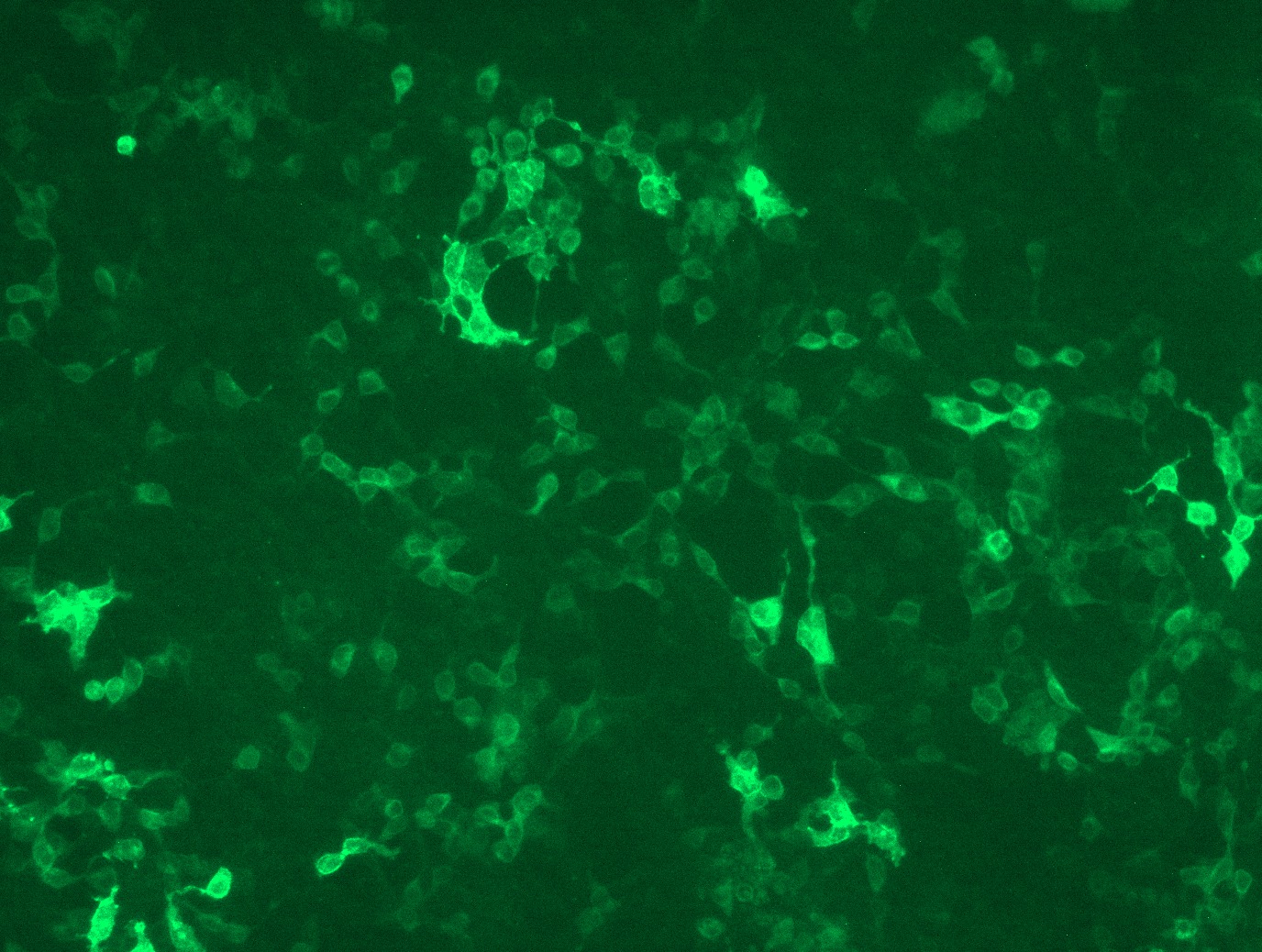Glypican 3 (GPC3) (NM_001164617) Human Tagged ORF Clone Lentiviral Particle
CAT#: RC228491L1V
- LentiORF®
-

Lenti ORF particles, GPC3 (Myc-DDK tagged) - Human glypican 3 (GPC3), transcript variant 1, 200ul, >10^7 TU/mL
Other products for "GPC3"
Specifications
| Product Data | |
| Type | Human Tagged ORF Clone Lentiviral Particle |
| Tag | Myc-DDK |
| Symbol | GPC3 |
| Synonyms | DGSX; GTR2-2; MXR7; OCI-5; SDYS; SGB; SGBS; SGBS1 |
| Vector | pLenti-C-Myc-DDK |
| ACCN | NM_001164617 |
| ORF Size | 1809 bp |
| Sequence Data |
The ORF insert of this clone is exactly the same as(RC228491).
|
| OTI Disclaimer | The molecular sequence of this clone aligns with the gene accession number as a point of reference only. However, individual transcript sequences of the same gene can differ through naturally occurring variations (e.g. polymorphisms), each with its own valid existence. This clone is substantially in agreement with the reference, but a complete review of all prevailing variants is recommended prior to use. More info |
| OTI Annotation | This clone was engineered to express the complete ORF with an expression tag. Expression varies depending on the nature of the gene. |
| Reference Data | |
| RefSeq | NM_001164617.1, NP_001158089.1 |
| RefSeq ORF | 1812 bp |
| Locus ID | 2719 |
| UniProt ID | P51654, Q53H15 |
| Cytogenetics | Xq26.2 |
| Protein Families | Druggable Genome |
| MW | 68.41 kDa |
| Gene Summary | 'Cell surface heparan sulfate proteoglycans are composed of a membrane-associated protein core substituted with a variable number of heparan sulfate chains. Members of the glypican-related integral membrane proteoglycan family (GRIPS) contain a core protein anchored to the cytoplasmic membrane via a glycosyl phosphatidylinositol linkage. These proteins may play a role in the control of cell division and growth regulation. The protein encoded by this gene can bind to and inhibit the dipeptidyl peptidase activity of CD26, and it can induce apoptosis in certain cell types. Deletion mutations in this gene are associated with Simpson-Golabi-Behmel syndrome, also known as Simpson dysmorphia syndrome. Alternative splicing results in multiple transcript variants. [provided by RefSeq, Sep 2009]' |
Documents
| Product Manuals |
| FAQs |
Resources
{0} Product Review(s)
0 Product Review(s)
Submit review
Be the first one to submit a review
Product Citations
*Delivery time may vary from web posted schedule. Occasional delays may occur due to unforeseen
complexities in the preparation of your product. International customers may expect an additional 1-2 weeks
in shipping.






























































































































































































































































 Germany
Germany
 Japan
Japan
 United Kingdom
United Kingdom
 China
China


